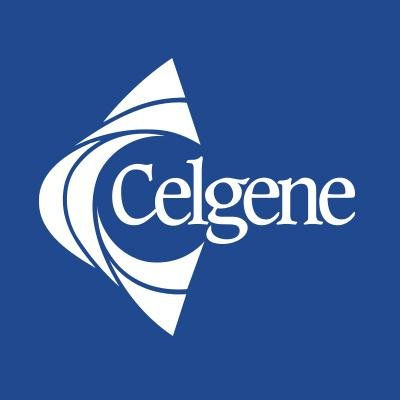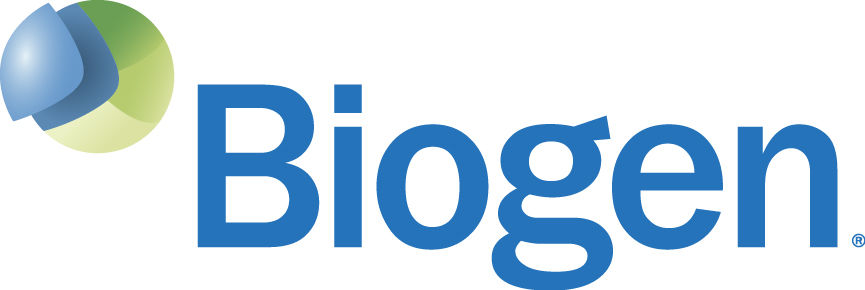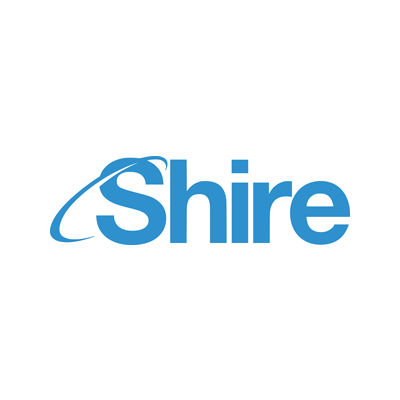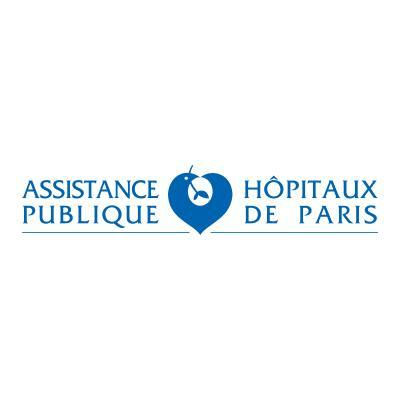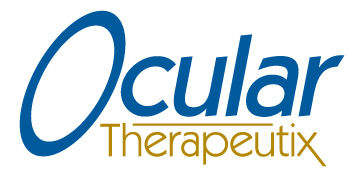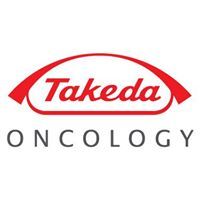预约演示
更新于:2025-09-10
Dexamethasone
地塞米松
更新于:2025-09-10
概要
基本信息
简介地塞米松是一种具有糖皮质激素受体 (GR) 激动作用的小分子药物。 GR 广泛分布于各种细胞类型,负责无数生理反应,包括免疫和炎症反应。 地塞米松与 GR 结合,通过基因表达和蛋白质合成发挥激动作用,从而降低机体炎症反应,降低免疫系统活动。地塞米松已证明可以治疗多种疾病,包括但不限于光化性唇炎、轻链 (AL) 淀粉样变性、眼部炎症、黄斑水肿和过敏反应。 早在 1958 年 10 月 30 日,FDA 就批准了地塞米松。此外,英国国家卫生服务局和美国国立卫生研究院推荐地塞米松用于需要机械通气或补充氧气(无通气)的COVID-19患者。 |
药物类型 小分子化药 |
别名 CMIO-DEX、Decadron Phosphate、Dexamethasone Intravitreal Implant + [48] |
靶点 |
作用方式 激动剂 |
作用机制 GR激动剂(糖皮质激素受体激动剂) |
在研适应症 |
非在研机构 |
最高研发阶段批准上市 |
最高研发阶段(中国)批准上市 |
特殊审评孤儿药 (美国)、优先审评 (中国) |
登录后查看时间轴
结构/序列
分子式C22H29FO5 |
InChIKeyUREBDLICKHMUKA-CXSFZGCWSA-N |
CAS号50-02-2 |
关联
2,277
项与 地塞米松 相关的临床试验CTRI/2025/04/085622
Comparative Analysis of Pupillary Constriction in Femto-Second Laser-Assisted Cataract Surgery (FLACS) vs Pre-Operative Intravenous Dexamethasone Injection: A Prospective Randomized Study - nil
开始日期2026-04-06 |
申办/合作机构- |
NCT07084285
Cervical Facet Injection of Corticosteroids for the Management of Cervicobrachialgia : Protocol for a Randomized Pilot Study
The main objective is to evaluate the efficacy of a single posterior intra-articular injection of dexamethasone on radicular pain (RP) at 1 month in the treatment of uncomplicated chronic cervicobrachial neuralgia (CBN) in adults, resistant to well-conducted first-line medical treatment.
开始日期2026-01-01 |
NCT07072234
Phase I Study of Allogeneic Transforming Growth Factor-beta Receptor Type 2 Knockout CD70 CAR NK Cells in Treatment Refractory Clear Cell Renal Cell Carcinoma
Testing an investigational cancer therapy called TGFBR-2 KO CD70 CAR NK cell therapy.
开始日期2026-01-01 |
100 项与 地塞米松 相关的临床结果
登录后查看更多信息
100 项与 地塞米松 相关的转化医学
登录后查看更多信息
100 项与 地塞米松 相关的专利(医药)
登录后查看更多信息
81,273
项与 地塞米松 相关的文献(医药)2026-02-01·BIOMATERIALS
A novel Kupffer cell-targeting nanoparticle system to Mitigate alcohol-associated liver disease
Article
作者: Menon, Jyothi U ; Slitt, Angela ; Kim, Youbin ; Perera, Kalindu ; Flanagan, Riley ; Unagolla, Janitha M ; Kaye, Emily ; Soloff, Curtis
Alcohol-associated liver disease (ALD) is a major cause of cirrhosis-related deaths worldwide. Due to its asymptomatic progression, early diagnosis and treatment are challenging, often resulting in severe complications. To address challenges associated with conventional treatments, including non-specificity and toxicity, we developed a poly lactic-co-glycolic acid nanoparticle (PLGA NP)-based drug delivery system that specifically targets Kupffer cells (KCs), which are major drivers of chronic liver disease progression. The PLGA NPs were loaded with the anti-inflammatory agent dexamethasone, and coated with carboxymethyl chitosan (CMC), a pH-responsive polymer that facilitates dexamethasone release in the acidic inflammatory environment. A semisynthetic bile acid, INT-777 was conjugated to the CMC-coated PLGA NPs to target G-protein coupled receptors expressed only on KCs in the liver. The NP formulation containing 1 % (w/v) CMC demonstrated significantly higher dexamethasone release at pH 6.0 and were cytocompatible. Cellular uptake studies with differentiated THP1 monocytes (modeling KCs) and HepG2 cells indicated a preferential uptake by THP1 cells, confirming INT-777 specificity. In an ALD mouse model developed through ad libitum ethanol feeding (5 % (v/v) for 10 days), biodistribution studies showed significant NP accumulation in the liver at 24 and 72h following administration. Treatment with CMC-coated PLGA NPs containing dexamethasone and INT-777 led to significantly decreased serum aspartate aminotransferase, alanine aminotransferase, and pro-inflammatory cytokines levels, and reduced liver inflammation as confirmed by Hematoxylin and Eosin, and Oil red O staining. These findings demonstrate that CMC-coated PLGA NPs hold significant potential as a treatment option for ALD-associated inflammation.
2026-01-01·SPECTROCHIMICA ACTA PART A-MOLECULAR AND BIOMOLECULAR SPECTROSCOPY
Viscosity-responsive NIR AIE fluorescent probe for lysosome-targeted tumor imaging
Article
作者: Liu, Jianxi ; Xue, Ying ; Liu, Wanhui ; Zhang, Yonglin ; Shen, Li ; Zhu, Yanping ; Chen, Shulin ; Wang, Aiping ; Xu, Lixiao ; Hu, Jiale
Lysosomal viscosity alterations are critical indicators in cancer progression, yet their precise visualization in vivo remains challenging. We report YL-134, a novel near-infrared (NIR) aggregation-induced emission (AIE) fluorescent probe for targeted lysosomal viscosity sensing and tumor imaging. YL-134, based on a D-π-a quinoline-malononitrile core, features a morpholine for lysosomal targeting (Pearson's r = 0.914) and a sulfonic acid group for aqueous solubility. Upon excitation at 447 nm, it exhibits bright NIR emission (650-750 nm), a large stokes shift (>200 nm), and robust AIE. YL-134shows a sensitive, linear (R2 = 0.9740) fluorescence turn-on to viscosity, with its quantum yield increasing from 3.06 % in water to 12.13 % in glycerol. It demonstrates excellent stability (pH, light, plasma, ions) and low cytotoxicity. Notably, YL-134 distinguished MCF-7 cancer cells from HUVEC normal cells with ∼16-fold higher fluorescence in MCF-7 cells. It accurately tracked intracellular lysosomal viscosity changes induced by Cu2+ (about 78 % fluorescence decrease) and dexamethasone (about 87 % fluorescence increase). Most significantly, YL-134 enabled successful in vivo tumor imaging in MCF-7 tumor-bearing mice, achieving a tumor-to-background ratio of around 2.16. YL-134 is a promising NIR AIE probe for precise lysosomal viscosity visualization, offering significant potential for advancing cancer diagnosis and research.
2025-12-31·Gut Microbes
Extracellular vesicles of
Limosilactobacillus fermentum
SLAM216 ameliorate skin symptoms of atopic dermatitis by regulating gut microbiome on serotonin metabolism
Article
作者: Choi, Hyejin ; Choi, Youbin ; Kwak, Min-Jin ; Mun, Daye ; Kim, Younghoon ; Park, Mi Ri ; Oh, Sangnam ; Eor, Ju Young ; Kang, An Na
Atopic dermatitis (AD) is a globally prevalent chronic inflammatory skin disorder. Its pathogenesis remains incompletely understood, resulting in considerable therapeutic challenges. Recent studies have highlighted the significance of the interaction between AD and gut microbiome. In this study, we investigated the effects of probiotic-derived extracellular vesicles on AD. Initially, we isolated and characterized extracellular vesicles from Limosilactobacillus fermentum SLAM 216 (LF216EV) and characterized their composition through multi-omics analysis. Gene ontology (GO) and pathway analysis classified LF216EV proteins into biological processes, molecular functions, and cellular components. Importantly, specific abundance in linoleic, oleic, palmitic, sebacic, and stearic acids indicating upregulated fatty acid metabolism were observed by metabolomic analysis. Furthermore, featured lipid profiling including AcylGlcADG and ceramide were observed in LF216EV. Importantly, in an atopic dermatitis-like cell model induced by TNFα/IFNγ, LF216EV significantly modulated the expression of immune regulatory genes (TSLP, TNFα, IL-6, IL-1β, and MDC), indicating its potential functionality in atopic dermatitis. LF216EV alleviated AD-like phenotypes, such as redness, scaling/dryness, and excoriation, induced by DNCB. Histopathological analysis revealed that LF216EV decreased epidermal thickness and mast cell infiltration in the dermis. Furthermore, LF216EV administration reduced mouse scratching and depression-related behaviors, with a faster onset than the classical treatment with dexamethasone. In the quantitative real-time polymerase chain reaction (qRT-PCR) analysis, we observed a significant increase in the expression levels of htrb2c, sert, and tph-1, genes associated with serotonin, in the skin and gut of the LF216EV-treated group, along with a significant increase in the total serum serotonin levels. Gut microbiome analysis of the LF216EV-treated group revealed an altered gut microbiota profile. Correlation analysis revealed that the genera Limosilactobacillus and Desulfovibrio were associated with differences in the intestinal metabolites, including serotonin. Our findings demonstrate that LF216EV mitigates AD-like symptoms by promoting serotonin synthesis through the modulation of gut microbiota and metabolome composition.
2,388
项与 地塞米松 相关的新闻(医药)2025-09-10
– Top-Line Results Anticipated in March 2026 –
NEWTON, Mass., Sept. 10, 2025 /PRNewswire/ -- Karyopharm Therapeutics Inc. (Nasdaq: KPTI), a commercial-stage pharmaceutical company pioneering novel cancer therapies, today announced that it has completed enrollment in the Phase 3 SENTRY trial, which is evaluating selinexor in combination with ruxolitinib in JAKi-naïve myelofibrosis patients.
"We are excited to announce that we have completed enrollment of our Phase 3 SENTRY trial and look forward to sharing top-line data from this pivotal trial in March 2026," said Richard Paulson, President and Chief Executive Officer of Karyopharm. "Selinexor plus ruxolitinib has the potential to be the first combination therapy approved for the treatment of myelofibrosis, depending on the outcome of the data. By combining selinexor with the current standard of care, we believe we have the potential to redefine the way people living with myelofibrosis are treated."
"I am grateful for the patients, their families and caregivers, the investigators and their clinical trial staff, as well as the extraordinary efforts of the Karyopharm team and our external partners for their help in successfully achieving this important milestone," said Reshma Rangwala, MD, PhD, Chief Medical Officer and Head of Research of Karyopharm. "This trial is advancing our understanding of the treatment of myelofibrosis and the potential role that XPO1 inhibition may play in this disease. People living with myelofibrosis deserve new treatment options and everyone involved in SENTRY is making an important contribution towards our common goal of providing additional options to patients with this disease."
"We are encouraged by the work that Karyopharm is doing in myelofibrosis and eagerly await data from the Phase 3 SENTRY trial," said Kapila Viges, Chief Executive Officer of MPN Research Foundation. "The myelofibrosis community is in need of new, more effective therapies that can help a greater number of patients beyond what is available with currently approved options. Efforts to develop new therapies bring hope to the myelofibrosis community and open the potential for patients to have more treatment options. For patients, options matter."
SENTRY (XPORT-MF-034; NCT04562389) is a Phase 3 clinical trial evaluating a once-weekly dose of 60 mg of selinexor in combination with ruxolitinib compared to placebo plus ruxolitinib in JAKi-naïve myelofibrosis patients with platelet counts >100 x 10
9/L. Patients are randomized 2-to-1 to the selinexor arm. The co-primary endpoints for this trial are spleen volume response rate ≥ 35% (SVR35) at week 24 and the average change in absolute total symptom score (Abs-TSS) over 24 weeks relative to baseline. The Phase 3 trial enrolled 353 patients.
About Myelofibrosis
Myelofibrosis is a rare blood cancer that affects approximately 20,000 patients in the United States and 17,000 patients in the European Union1. The disease causes bone marrow fibrosis (scarring in the bone marrow), which makes it difficult for the bone marrow to make healthy blood cells, splenomegaly (enlarged spleen), progressive anemia which often leads to symptoms like fatigue and weakness, and other disease associated symptoms including abdominal discomfort, pain under the left ribs, early satiety, night sweats and bone pain. The only approved class of therapies to treat myelofibrosis are JAK inhibitors, including ruxolitinib. Patients treated with the most commonly prescribed JAK inhibitor often require blood transfusions, and more than 30% will discontinue treatment due to anemia.2 Anemia and transfusion dependence are strongly correlated with poor prognosis and shortened survival.3
1. Clarivate/DRG (2023)
2. Palandri, F., Palumbo, G.A., Elli, E.M. et al. Ruxolitinib discontinuation syndrome: incidence, risk factors, and management in 251 patients with myelofibrosis. Blood Cancer J. 11, 4 (2021).
3. Pardanani, A., & Tefferi, A. (2011). Prognostic relevance of anemia and transfusion dependency in myelodysplastic syndromes and primary myelofibrosis. Haematologica, 96(1), 8–10.
About XPOVIO® (selinexor)
XPOVIO is a first-in-class, oral exportin 1 (XPO1) inhibitor and the first of Karyopharm's Selective Inhibitor of Nuclear Export (SINE) compounds for the treatment of cancer. XPOVIO functions by selectively binding to and inhibiting the nuclear export protein XPO1. XPOVIO is approved in the U.S. and marketed by Karyopharm in multiple oncology indications, including: (i) in combination with VELCADE® (bortezomib) and dexamethasone (XVd) in adult patients with multiple myeloma after at least one prior therapy; (ii) in combination with dexamethasone in adult patients with heavily pre-treated multiple myeloma; and (iii) under accelerated approval in adult patients with diffuse large B-cell lymphoma (DLBCL), including DLBCL arising from follicular lymphoma, after at least two lines of systemic therapy. XPOVIO® (also known as NEXPOVIO® in certain countries) has received regulatory approvals in various indications in a growing number of ex-U.S. territories and countries, including but not limited to the European Union, the United Kingdom, Mainland China, Taiwan, Hong Kong, Australia, South Korea, Singapore, Israel, and Canada. XPOVIO®/NEXPOVIO® is marketed in these respective ex-U.S. territories by Karyopharm's partners: Antengene, Menarini, Neopharm, and FORUS. Selinexor is also being investigated in several other mid- and late-stage clinical trials across multiple high unmet need cancer indications, including in endometrial cancer and myelofibrosis.
For more information about Karyopharm's products or clinical trials, please contact the Medical Information department at: Tel: +1 (888) 209-9326; Email: [email protected]
XPOVIO® (selinexor) is a prescription medicine approved:
In combination with bortezomib and dexamethasone for the treatment of adult patients with multiple myeloma who have received at least one prior therapy (XVd).
In combination with dexamethasone for the treatment of adult patients with relapsed or refractory multiple myeloma who have received at least four prior therapies and whose disease is refractory to at least two proteasome inhibitors, at least two immunomodulatory agents, and an anti‐CD38 monoclonal antibody (Xd).
For the treatment of adult patients with relapsed or refractory diffuse large B‐cell lymphoma (DLBCL), not otherwise specified, including DLBCL arising from follicular lymphoma, after at least two lines of systemic therapy. This indication is approved under accelerated approval based on response rate. Continued approval for this indication may be contingent upon verification and description of clinical benefit in confirmatory trial(s).
SELECT IMPORTANT SAFETY INFORMATION
Warnings and Precautions
Thrombocytopenia: Monitor platelet counts throughout treatment. Manage with dose interruption and/or reduction and supportive care.
Neutropenia: Monitor neutrophil counts throughout treatment. Manage with dose interruption and/or reduction and granulocyte colony‐stimulating factors.
Gastrointestinal Toxicity: Nausea, vomiting, diarrhea, anorexia, and weight loss may occur. Provide antiemetic prophylaxis. Manage with dose interruption and/or reduction, antiemetics, and supportive care.
Hyponatremia: Monitor serum sodium levels throughout treatment. Correct for concurrent hyperglycemia and high serum paraprotein levels. Manage with dose interruption, reduction, or discontinuation, and supportive care.
Serious Infection: Monitor for infection and treat promptly.
Neurological Toxicity: Advise patients to refrain from driving and engaging in hazardous occupations or activities until neurological toxicity resolves. Optimize hydration status and concomitant medications to avoid dizziness or mental status changes.
Embryo‐Fetal Toxicity: Can cause fetal harm. Advise females of reproductive potential and males with a female partner of reproductive potential, of the potential risk to a fetus and use of effective contraception.
Cataract: Cataracts may develop or progress. Treatment of cataracts usually requires surgical removal of the cataract.
Adverse Reactions
The most common adverse reactions (≥20%) in patients with multiple myeloma who receive XVd are fatigue, nausea, decreased appetite, diarrhea, peripheral neuropathy, upper respiratory tract infection, decreased weight, cataract and vomiting. Grade 3‐4 laboratory abnormalities (≥10%) are thrombocytopenia, lymphopenia, hypophosphatemia, anemia, hyponatremia and neutropenia. In the BOSTON trial, fatal adverse reactions occurred in 6% of patients within 30 days of last treatment. Serious adverse reactions occurred in 52% of patients. Treatment discontinuation rate due to adverse reactions was 19%.
The most common adverse reactions (≥20%) in patients with multiple myeloma who receive Xd are thrombocytopenia, fatigue, nausea, anemia, decreased appetite, decreased weight, diarrhea, vomiting, hyponatremia, neutropenia, leukopenia, constipation, dyspnea and upper respiratory tract infection. In the STORM trial, fatal adverse reactions occurred in 9% of patients. Serious adverse reactions occurred in 58% of patients. Treatment discontinuation rate due to adverse reactions was 27%.
The most common adverse reactions (incidence ≥20%) in patients with DLBCL, excluding laboratory abnormalities, are fatigue, nausea, diarrhea, appetite decrease, weight decrease, constipation, vomiting, and pyrexia. Grade 3‐4 laboratory abnormalities (≥15%) are thrombocytopenia, lymphopenia, neutropenia, anemia, and hyponatremia. In the SADAL trial, fatal adverse reactions occurred in 3.7% of patients within 30 days, and 5% of patients within 60 days of last treatment; the most frequent fatal adverse reactions was infection (4.5% of patients). Serious adverse reactions occurred in 46% of patients; the most frequent serious adverse reaction was infection (21% of patients). Discontinuation due to adverse reactions occurred in 17% of patients.
Use In Specific Populations
Lactation: Advise not to breastfeed.
For additional product information, including full prescribing information, please visit
.
To report SUSPECTED ADVERSE REACTIONS, contact Karyopharm Therapeutics Inc. at 1‐888‐209‐9326 or FDA at 1‐800‐FDA‐1088 or .
About Karyopharm Therapeutics
Karyopharm Therapeutics Inc. (Nasdaq: KPTI) is a commercial-stage pharmaceutical company whose dedication to pioneering novel cancer therapies is fueled by a belief in the extraordinary strength and courage of patients with cancer. Since its founding, Karyopharm has been an industry leader in oral compounds that address nuclear export dysregulation, a fundamental mechanism of oncogenesis. Karyopharm's lead compound and first-in-class, oral exportin 1 (XPO1) inhibitor, XPOVIO® (selinexor), is approved in the U.S. and marketed by the Company in three oncology indications. It has also received regulatory approvals in various indications in 50 ex-U.S. territories and countries, including Europe and the United Kingdom (as NEXPOVIO®) and China. Karyopharm has a focused pipeline targeting indications in multiple high unmet need cancers, including in multiple myeloma, endometrial cancer, myelofibrosis, and diffuse large B-cell lymphoma (DLBCL). For more information about our people, science and pipeline, please visit , and follow us on LinkedIn and on X at @Karyopharm.
Forward-Looking Statements
This press release contains forward-looking statements within the meaning of The Private Securities Litigation Reform Act of 1995. Such forward-looking statements include those regarding the timing of reporting of top-line data from the SENTRY trial; the ability of selinexor to treat patients with multiple myeloma, endometrial cancer, myelofibrosis, diffuse large B-cell lymphoma and other diseases; and expectations with respect to the clinical development plans and potential regulatory submissions of selinexor. Such statements are subject to numerous important factors, risks and uncertainties, many of which are beyond Karyopharm's control, that may cause actual events or results to differ materially from Karyopharm's current expectations. For example, there can be no guarantee that Karyopharm will successfully commercialize XPOVIO or that any of Karyopharm's drug candidates, including selinexor, will successfully complete necessary clinical development phases or that development of any of Karyopharm's drug candidates will continue. Further, there can be no guarantee that any positive developments in the development or commercialization of Karyopharm's drug candidate portfolio will result in stock price appreciation. Management's expectations and, therefore, any forward-looking statements in this press release could also be affected by risks and uncertainties relating to a number of other factors, including the following: the adoption of XPOVIO in the commercial marketplace, the timing and costs involved in commercializing XPOVIO or any of Karyopharm's drug candidates that receive regulatory approval; the ability to obtain and retain regulatory approval of XPOVIO or any of Karyopharm's drug candidates that receive regulatory approval; Karyopharm's results of clinical trials and preclinical trials, including subsequent analysis of existing data and new data received from ongoing and future trials; the content and timing of decisions made by the U.S. Food and Drug Administration and other regulatory authorities, investigational review boards at clinical trial sites and publication review bodies, including with respect to the need for additional clinical trials; the ability of Karyopharm or its third party collaborators or successors in interest to fully perform their respective obligations under the applicable agreement and the potential future financial implications of such agreement; Karyopharm's ability to enroll patients in its clinical trials; unplanned cash requirements and expenditures; substantial doubt exists regarding Karyopharm's ability to continue as a going concern; development or regulatory approval of drug candidates by Karyopharm's competitors for products or product candidates in which Karyopharm is currently commercializing or developing; the direct or indirect impact of the COVID-19 pandemic or any future pandemic on Karyopharm's business, results of operations and financial condition; and Karyopharm's ability to obtain, maintain and enforce patent and other intellectual property protection for any of its products or product candidates. These and other risks are described under the caption "Risk Factors" in Karyopharm's Quarterly Report on Form 10-Q for the quarter ended June 30, 2025, which was filed with the Securities and Exchange Commission (SEC) on August 11, 2025, and in other filings that Karyopharm may make with the SEC in the future. Any forward-looking statements contained in this press release speak only as of the date hereof, and, except as required by law, Karyopharm expressly disclaims any obligation to update any forward-looking statements, whether as a result of new information, future events or otherwise.
XPOVIO® and NEXPOVIO® are registered trademarks of Karyopharm Therapeutics Inc.
SOURCE Karyopharm Therapeutics Inc.
WANT YOUR COMPANY'S NEWS FEATURED ON PRNEWSWIRE.COM?
440k+
Newsrooms &
Influencers
9k+
Digital Media
Outlets
270k+
Journalists
Opted In
GET STARTED
临床3期上市批准临床结果加速审批
2025-09-09
·医脉通
这是何故?难道会发生“基因突变”?
来源 | 医脉通
作者 | 昼辞
01
“快!26床病人过敏了,快来帮帮忙!”正在准备为病人输液的护士小柳急忙呼叫其他医护人员。
只见一位中年女性患者不停地喘着粗气,紧紧握住柳护士的胳膊,脸颊潮红,手臂上布满风团样皮疹。
“抢救车到了吗?快!立即肌注肾上腺素1mg。”管床医生当机立断下达指令。
“有没有喉咙紧?喘不上气?”患者王女士只能点头示意。
严重过敏反应是指机体在接触过敏原后突发的、严重的、可危及生命的全身性过敏反应。其主要临床特征为快速出现威胁生命的呼吸系统或/和循环系统问题,多数情况下会伴有皮肤黏膜系统症状。目前,各项指南均推荐肾上腺素作为严重过敏反应的首选用药。
王女士的症状迅速得到缓解。
随后,在询问发病经过时,她回忆道:“刚刚去开水房打水,回来后就全身发红,呼吸困难。”
这令人感到困惑,因为她并非第一次前往开水房,为何会突然发生过敏?
02
王女士对“过敏”二字早已习以为。
“自六年前确诊哮喘以来,我就感觉对各种物质都过敏。”王女士说道。
在此之前,患者已发现对青霉素、头孢菌素、左氧氟沙星等多种抗菌药物过敏。此外,生活中她还对鱼虾、芒果、酒精、牛奶、粉尘等过敏。
由于对多种变应原过敏,王女士的生活变得小心翼翼,稍有不慎就会突发过敏,长期的精神紧绷也导致她同时饱受焦虑抑郁的困扰。
因讳疾忌医,她在再次感冒着凉后,导致“支气管哮喘急性发作”而入院。若非丈夫坚持,她仍拒绝住院治疗。
图源:作者提供
胸部CT显示,双肺存在少许新增感染灶。因此,除了抗炎平喘治疗外,抗感染治疗也至关重要。然而,问题在于患者对多种常见抗生素过敏,该如何选择?
目前,肺炎链球菌和肺炎支原体是我国成人社区获得性肺炎(CAP)的主要病原体。肺炎克雷伯菌及大肠埃希菌等革兰阴性菌肺炎,则常见于高龄或存在基础疾病(如充血性心力衰竭、心脑血管疾病、慢性呼吸系统疾病等)的患者群体。
对于王女士这类合并社区获得性肺炎的慢性呼吸系统疾病患者,通常需要选择更为广谱的抗生素,但患者对青霉素类、喹诺酮类、头孢菌素类均过敏。
幸而入院检查显示患者血象及炎症指标不太高,可尝试使用大环内酯类的阿奇霉素进行抗感染治疗。更加幸运的是,患者暂未出现过敏反应。
03
另一方面,患者血气分析提示存在I型呼吸衰竭,需进行心电监护以密切监测生命体征。
岂料,当天夜里,她便感到电极片粘贴处的胸壁瘙痒难耐,并伴有红肿。原来,过敏反应再次在不经意间发生。
医护人员立即拆除电极片,用温水擦拭胸壁皮肤,并给予“氯雷他定片”进行抗过敏治疗。
然而,出乎意料的是,患者竟然对抗过敏药也“过敏”。服药后,王女士的瘙痒症状非但未缓解,反而红疹范围扩大。
医护人员随即改变治疗方案,采用“地塞米松、盐酸异丙嗪”进行治疗,此次症状才完全得到缓解。
入院短短两天内频繁发作过敏,使王女士心情愈发沉重。
“我这病是不是治不好了?这辈子可怎么办?会拖累家里人的。”王女士低头垂泪。
此后,王女士变得更加沉默寡言,眉头紧锁,尽管家人时常陪伴在侧,也难以令她放松心情。
04
其实,幼年时期的王女士并未对如此多的食物或药物过敏。然而,自六年前确诊“哮喘”后,便开始出现突然过敏的情况。这是何故?难道会发生“基因突变”?
过敏,简而言之,是机体对某种特定物质产生过度反应,出现“敌我不分”的现象。这些人群在反复接触自然界中的某种特定物质时,会导致机体产生过度剧烈的免疫反应,进而造成组织和器官的损伤,从而影响正常的生理机能。
过敏的发生不仅与食物、冷空气、花粉、药物等常见因素有关,情绪压力、焦虑状态等心理因素也可能导致过敏反应的突然发作,这一点往往容易被忽视。
那么,焦虑等负面情绪如何影响身体机能呢?
研究表明,压力荷尔蒙会刺激免疫球蛋白IgE的生成,压力越大,刺激生成越多。人体的内分泌系统、神经系统和免疫系统相互关联、相互影响。而IgE是导致超敏反应的主要物质,当其在人体血液内迅速增多时,就会引发I型过敏反应。
I型超敏反应是指已致敏的机体再次接触相同抗原后,在数分钟内发生的超敏反应。
其主要特点包括:发生迅速,消退也快;通常仅导致机体生理功能紊乱,极少引起组织损伤;由IgE介导肥大细胞和嗜碱性粒细胞释放活性介质,引起局部或全身反应;主要病理改变为平滑肌收缩、腺体分泌增加、毛细血管扩张;具有遗传倾向。其临床表现大多为气喘、皮疹、皮炎等。
回到王女士的病情,她的“焦虑症”几乎也是在确诊“哮喘”后出现的。由于过度担忧病情,她时常愁容满面,食欲不振,整夜难眠。
“我也知道自己很焦虑,但就是无法控制不去多想。确实,一紧张就焦虑,容易皮肤痒、气紧,而且经常便秘、腹胀,天天吃香蕉通便也无济于事。”患者回忆病情后说道。
05
明确了这一诊疗方向后,管床医生则邀请精神心理科进行会诊。
经过完善的问卷评估,确定王女士处于重度焦虑抑郁状态,建议进行心理疏导治疗,并给予“坦度螺酮胶囊、氟哌噻吨美利曲辛片”以治疗焦虑抑郁。
神奇的是,原本时常发作的过敏反应几乎未再出现,王女士也经常下楼晒太阳,心情逐渐开朗起来。
图源:作者提供
只是便秘和腹胀的情况,仍然持续存在。完善腹部平片检查后,可见大量肠内容物及气体。予以灌肠通便治疗后,症状明显减轻,随后顺利出院回家。
过敏反应在我们日常生活中并不罕见,多数时候是在接触过敏原后突然发生的,但也有少部分是由情绪、压力等心理因素诱发的,因此往往不被重视。
美国内科学和精神学教授恩格尔提出的生物心理社会医学模式是一种全面的医学模式,它认为疾病和健康问题不仅仅是生物学因素的结果,还包括心理、社会和环境等多方面因素的影响。
因此,在临床中,医生应综合考虑患者的生物学特征和心理状况,才能准确治疗和评估病情。
参考资料:
[1] Li X,Ma Q,Yin J,et al.A Clinical Practice Guideline for the Emergency Management of Anaphylaxis(2020).Front Pharmacol.2022 Mar 28;13:845689.
doi: 10.3389/fphar.2022.845689. PMID: 35418863; PMCID: PMC8996305.
责编|Zelda
封面图来源|视觉中国
治疗前未拍片排除骨折,因“不排除存在漏诊”过错,医方担责30%,如何规避骨科诊疗风险?丨医眼看法
晕倒两次,间隔5分钟……老人头晕两年无大碍,为何突然命悬一线?丨医起推理吧
医脉通是专业的在线医生平台,“感知世界医学脉搏,助力中国临床决策”是平台的使命。医脉通旗下拥有「临床指南」「用药参考」「医学文献王」「医知源」「e研通」「e脉播」等系列产品,全面满足医学工作者临床决策、获取新知及提升科研效率等方面的需求。
☟戳这里,更有料!
2025-09-07
·精准药物
重要性 (IMPORTANCE) 小细胞肺癌(SCLC)是一种高级别神经内分泌癌,2021年在美国的发病率为每10万人4.7例,5年总生存率为12%至30%。
观察结果 (OBSERVATIONS) 吸烟是SCLC发生的主要危险因素,95%的SCLC确诊患者有吸烟史。SCLC患者可能出现呼吸道症状,如咳嗽(40%)、气短(34%)、咯血(10%),或因转移灶引起的相应局部症状(30%),如胸膜炎或骨痛;约60%的SCLC患者在诊断时可能无症状。胸部影像学检查可能显示中央肺门(85%)或纵隔淋巴结肿大(75%)。诊断时,约15%的患者存在脑转移,可能表现为头痛或局灶性无力。诊断通过原发肺部肿块、胸部淋巴结或转移病灶的活检确认。
小细胞肺癌根据疾病是否可以包含在通常局限于单侧胸腔但可能包括对侧纵隔和锁骨上淋巴结的放射野内进行治疗,分为局限期(LS-SCLC;30%)和广泛期(ES-SCLC;70%)。对于LS-SCLC患者,手术或铂类-依托泊苷同步化疗和放疗在30%的患者中可能具有治愈潜力。最近,通过添加免疫疗法度伐利尤单抗(durvalumab),LS-SCLC的中位生存期已长达55.9个月。
ES-SCLC的一线治疗是铂类-依托泊苷化疗联合程序性细胞死亡1配体1(PD-L1)抑制剂度伐利尤单抗或阿替利珠单抗(atezolizumab)的免疫疗法,随后进行维持免疫治疗直至疾病进展或出现毒性反应。尽管铂类-依托泊苷联合免疫治疗的初始肿瘤缩小率为60%至70%,但接受治疗的ES-SCLC患者的中位总生存期约为12至13个月,60%的患者在3个月内复发。ES-SCLC患者的二线治疗包括DNA烷化剂芦比替定(lurbinectedin,总缓解率35%;中位无进展生存期3.7个月)和针对Delta样配体3(DLL3)的双特异性T细胞衔接器塔拉妥单抗(tarlatamab,总缓解率40%;中位无进展生存期4.9个月)。
结论与相关性 (CONCLUSIONS AND RELEVANCE) 小细胞肺癌是一种与吸烟相关的恶性肿瘤,70%的患者在诊断时已处于晚期。LS-SCLC的3年总生存率约为56.5%,ES-SCLC为17.6%。LS-SCLC的一线治疗是同步化疗和针对肿瘤的放疗,随后进行巩固免疫治疗。对于ES-SCLC,一线治疗是化疗和免疫治疗,随后进行维持免疫治疗。
2024年,肺癌是美国癌症相关死亡的主要原因,也是美国诊断出的第二大癌症。小细胞肺癌(SCLC),以前被称为“燕麦细胞”癌,占所有肺癌的10%至15%,2021年在美国的发病率为每10万人4.7例。在过去十年中,SCLC的发病率从每10万人6.6例下降到4.7例,这与同期吸烟率的下降相对应。
诊断通过原发肿瘤、受累胸部淋巴结或转移病灶的活检确认。由于SCLC的高增殖率,70%的患者在诊断时已处于晚期疾病阶段。对于局限期(LS-SCLC)疾病(I-III期)患者的推荐治疗是肿瘤放疗和化疗。患有广泛期(ES-SCLC)疾病(远处转移性疾病或无法在安全的放射野内治疗的疾病)的患者应接受姑息治疗,包括联合化疗和免疫治疗(见图)。
局限期与广泛期小细胞肺癌的发病率及总体管理概述
复发时的治疗包括DNA烷化剂芦比替定、重新使用铂类-依托泊苷化疗、微管抑制剂如紫杉烷类,或其他DNA烷化剂如替莫唑胺。美国食品和药物管理局(FDA)最近加速批准了塔拉妥单抗(tarlatamab),一种参与T细胞介导的破坏的双特异性抗体,用于复发性SCLC。本综述总结了SCLC的流行病学、分子特征、临床表现和管理。一些常见的临床问题和答案见方框。方法 (Methods)
作者在PubMed中搜索了包含术语“small cell lung cancer”的文章;搜索范围限定为2014年3月16日至2024年10月13日期间发表的英文文章。文章选择侧重于主要的原始前瞻性数据。共纳入95篇文章。文章包括24项随机临床试验、2项随机临床试验的长期更新、2项随机临床试验的二次或汇总分析、11项非随机前瞻性试验、1项非随机前瞻性试验的更新、11项荟萃分析和系统评价、10项回顾性研究、3项临床实践指南、3篇综述和9项转化研究。其余19篇文章由作者根据2014年前的文献知识以及检索文章的引文审查确定。讨论 (Discussion)流行病学 (Epidemiology)
2024年美国诊断出约16,000例新的SCLC病例。美国的诊断中位年龄为69岁,男性发病率高于女性(每10万人5.1例 vs 4.6例)。在非西班牙裔美国印第安人和阿拉斯加原住民(每10万人8.5例)、非西班牙裔黑人(每10万人3.9例)和非西班牙裔白人(每10万人6.0例)中观察到SCLC的发病率高于非西班牙裔亚裔和太平洋岛民(每10万人1.9例)或西班牙裔(每10万人2.2例)。吸烟是SCLC的主要危险因素(人群归因风险>95%),SCLC的风险随着吸烟持续时间和强度的增加而增加,尽管在戒烟超过30年后,SCLC的发病率仍然升高。据报道,约2.5%至13%的SCLC发生在从未吸烟的个体中,这些患者可能预后更好。来自韩国一项多中心病例对照研究的391例病例中,无吸烟史患者的生存期为18.2个月,而吸烟者为13.1个月(P=0.054)。SCLC的分子特征 (Molecular Characteristics of SCLC)
小细胞肺癌的特征是几乎普遍存在肿瘤抑制基因RB1和TP53的缺失,疾病异质性由表观遗传调控的转录因子表达所表征。亚型包括A型和N型,分别以神经内分泌转录因子ASCL1和NeuroD1的表达为特征,以及P亚型,以非神经内分泌转录因子POU2F3的表达为特征。第四种亚型,I亚型,其特征是缺乏ASCL1、NeuroD1或POU2F3的表达,其特征是与免疫检查点抑制剂反应相关的基因表达,这是一类阻止肿瘤灭活T细胞的药物。YAP1也被提议作为一种潜在的亚型,与干扰素-γ的上调相关。与NSCLC不同,程序性细胞死亡1配体1(PD-L1)——一种在肿瘤细胞或抗原呈递细胞中表达的表面糖蛋白,允许肿瘤细胞逃避免疫破坏——在SCLC中的表达是可变的(0%-80%),并且不是SCLC中对检查点抑制剂反应的预测性生物标志物。
罕见情况下,具有称为“致癌驱动因子”的遗传变异(如EGFR或ALK变异)的NSCLC可能经历从腺癌到SCLC的组织学转化,尤其是在同时具有TP53或RB1变异的肿瘤中。此类肿瘤的生存期缩短(6至8.5个月 vs 原发SCLC的13个月),其预后较差的机制尚不清楚。临床表现 (Clinical Presentation)
SCLC患者可能出现咳嗽(40%)、气短(34%)或咯血(10%)等症状,但高达60%的患者可能无症状。可能观察到疾病累及部位的疼痛(30%)或全身症状,如体重减轻(24%)、厌食(9%)和疲劳(15%),尤其是在ES-SCLC中。约15%的SCLC患者在诊断时有脑转移,可能表现为头痛或局灶性无力。与无脑转移的ES-SCLC患者相比,这些患者的生存期缩短(6个月 vs 13个月;P<0.001)。约10%的患者出现上腔静脉综合征,其特征是由于淋巴结肿大压迫上腔静脉引起的头痛、面部或颈部肿胀、上肢水肿或声音改变。SCLC患者也可能有副肿瘤性内分泌病,包括抗利尿激素分泌不当综合征(SIADH)(占SCLC的24%),由于产生加压素而表现为低钠血症,或库欣综合征(占SCLC的2%-6%),由于肿瘤异位产生促肾上腺皮质激素(ACTH)而表现为水肿、无力、高血压或低钾血症。2%至3%的SCLC患者可能出现Lambert-Eaton肌无力综合征,其特征是由于自身免疫破坏电压门控钙通道导致神经肌肉接头乙酰胆碱释放受损,从而出现肌无力、共济失调和反射亢进。诊断评估 (Diagnostic Evaluation)
胸部X光或计算机断层扫描(CT)通常显示中央、支气管或肺门肿块伴大块淋巴结肿大。诊断通过原发肿瘤和/或淋巴结的内镜支气管超声活检或转移病灶活检进行。病理诊断通过形态学、免疫组织化学和增殖特征确认。活检细胞学或组织的苏木精-伊红(H&E)染色切片显示小、圆、蓝色细胞簇,核质比高,有丝分裂率高(≥每10个高倍视野10个有丝分裂)。Ki-67或增殖指数(显示细胞分裂速度)通常在50%至100%之间。SCLC的免疫组化染色可能对细胞角蛋白(50%-60%)、甲状腺转录因子1(TTF-1)(80%)和神经内分泌标志物如突触素(Syn,54%)、嗜铬粒蛋白A(CgA,37%)、CD56(90%-100%)和胰岛素瘤相关蛋白1(INSM1)(92%)呈阳性。SCLC可以通过形态学特征和有丝分裂计数(由世界卫生组织定义)与增殖性较低的神经内分泌肿瘤(如类癌和大细胞神经内分泌癌)区分开来。分期 (Staging)
SCLC诊断后,为了分期,患者应进行腹部CT、脑部磁共振成像(MRI)和正电子发射断层扫描(PET)/CT。如果无法进行PET/CT,可使用骨扫描排除骨转移。小细胞肺癌根据疾病是否局限于单侧胸腔(伴或不伴肺门淋巴结受累)并包含在一个放射野内,分为LS-SCLC或ES-SCLC。1986年,国际肺癌研究协会(IASLC)扩展了LS-SCLC的定义,将累及对侧纵隔和锁骨上淋巴结以及同侧胸腔积液的疾病包括在内。TNM系统(根据原发肿瘤大小、淋巴结阳性和远处转移对肿瘤进行分期)与IASLC分期系统密切相关,包括I至III期(局限期)和IV期(广泛期)。
方框
临床问题与答案 (Box. Clinical Questions and Answers)
1. SCLC通常如何表现? (How Does SCLC Typically Present?)
约60%的小细胞肺癌(SCLC)患者在就诊时无症状。然而,SCLC可能表现为咳嗽、气短或咯血症状。患者也可能有大块纵隔淋巴结肿大导致的上腔静脉综合征(10%)或脑转移(15%)。副肿瘤综合征,如抗利尿激素分泌不当综合征(25%)、库欣综合征(2%-6%)或Lambert-Eaton肌无力综合征(2%-3%)也可能发生在SCLC患者中。
2. LS-SCLC和ES-SCLC的一线治疗是什么? (What Are the First-Line Treatments for LS-SCLC and ES-SCLC?)
局限期(LS)SCLC的一线治疗是化疗和放疗,随后进行巩固免疫治疗。对于无淋巴结受累的LS-SCLC患者,经外科、放疗和内科肿瘤学专家的多学科讨论后,可考虑手术加辅助化疗。广泛期(ES)SCLC的一线治疗是化疗和免疫治疗的联合,随后进行维持免疫治疗。
3. LS-SCLC和ES-SCLC的预后如何? (What Are the Prognoses of LS-SCLC and ES-SCLC?)
经治疗,LS-SCLC患者的中位总生存期约为4.7年,ES-SCLC患者约为13个月。目前LS-SCLC的3年生存率约为56.5%,ES-SCLC为17.6%。为了提高生活质量和总生存期,所有诊断为SCLC的患者应在诊断时建立姑息治疗团队的护理,并鼓励复发SCLC患者参加可用的临床试验。治疗 (Treatment)
局限期SCLC (Limited-Stage SCLC)
1. 一线治疗 (First-Line Treatment)
局限期SCLC可以通过化疗、局部治疗(如放疗或手术)和巩固免疫治疗的组合进行根治性治疗(表1)。涉及肿瘤学家、放射肿瘤学家和胸外科医生的多学科讨论可以为LS-SCLC患者确定最佳治疗方法和个体化照护方案。
局限期小细胞肺癌精选III期随机临床试验总结
LS-SCLC的治疗是高剂量放疗靶向原发肿瘤和受累淋巴结,同时与铂类-依托泊苷化疗的第1或第2周期同步进行,化疗共进行4至6个周期。初始缓解率(定义为肿瘤缩小至少30%)为70%至90%。先前已确定,每日两次放疗(45 Gy,分30次)比每日一次放疗(45 Gy,分25次)具有更优的生存结果。两项针对LS-SCLC患者的3期试验比较了每日两次放疗与每日一次高剂量放疗(66-70 Gy,分33-35次),未报告每日一次高剂量放疗在总生存期或不良事件方面具有优势(CONVERT试验[n=547]:总生存期,每日一次25个月 vs 每日两次30个月[风险比HR, 1.18; 95% CI, 0.95-1.45];CALGB 30610/RTOG 0538试验[n=638]:总生存期,每日一次30.1个月 vs 每日两次28.5个月[风险比HR, 0.94; 95% CI, 0.76-1.17])。鉴于结果相似,每日一次或每日两次放疗方案都是合理的,但每日两次方案仍被视为一线治疗,因为随机试验尚未显示每日一次放疗方案在生存方面具有优势。每日两次方案(3周)可能对偏好较短治疗持续时间的患者有吸引力,而每日一次方案(6.5-7周)可能基于交通和放疗设备可用性等因素更受青睐。
无淋巴结受累(无淋巴结转移)的I至IIA期(T1-2N0M0)SCLC患者,如果在纵隔和肺门淋巴结活检中未检测到肿瘤,可考虑进行胸腔镜肺叶切除术。是否适合手术切除取决于心脏和肺部合并症(如肺功能测试)的评估。立体定向体部放疗(SBRT)——一种高剂量放疗形式——是I至IIA期(T1-2N0M0)疾病有效且安全的手术替代方案。接受手术或立体定向体部放疗后,患者接受4个周期的铂类-依托泊苷辅助化疗。根据国家综合癌症网络(NCCN)和美国放射肿瘤学会(ASTRO)指南,对于切缘阳性的患者,推荐辅助放疗。目前证据不支持SCLC的新辅助化疗。
2. 放化疗后的巩固免疫治疗 (Consolidation Immunotherapy After Chemoradiation)
根据NCCN指南,推荐在放化疗后进行巩固免疫治疗。3期ADRIATIC试验在939例不可手术的I至III期SCLC患者放化疗后,比较了长达2年的抗PD-L1抑制剂度伐利尤单抗单药治疗及其与检查点(细胞毒性T淋巴细胞相关蛋白4 [CTLA-4])抑制剂替西木单抗(tremelimumab)联合治疗与安慰剂的疗效。该研究报告,与安慰剂相比,巩固度伐利尤单抗改善了总生存期和无进展生存期(定义为疾病进展或死亡的时间)(总生存期:度伐利尤单抗组55.9个月 vs 安慰剂组33.4个月[P=0.01];无进展生存期:度伐利尤单抗组16.6个月 vs 安慰剂组9.2个月)。以治愈为目标的治疗相关不良事件报告如下:任何级别可能与研究治疗相关的不良事件:度伐利尤单抗组67.2%,安慰剂组48.7%;1-2级甲状腺功能减退:度伐利尤单抗组14.9%,安慰剂组3.4%;任何级别的肺炎:度伐利尤单抗组9.2%,安慰剂组5.3%;3-4级肺炎:度伐利尤单抗组1.1%,安慰剂组0.8%(比较的P值未报告)。
3. 预防性颅脑照射 (Prophylactic Cranial Irradiation)
约60%的LS-SCLC患者在诊断后3年内发生脑转移。尽管预防性颅脑照射(PCI)通常不用于早期LS-SCLC(I-IIA期)患者,因为这些患者的生存获益有限,但根据NCCN和ASTRO指南,对于LS-SCLC(IIB-IIIC期)患者,在放化疗后影像学确认肿瘤缩小后,推荐进行每日低剂量全脑预防性颅脑照射。在一项包含987例完全缓解的SCLC患者的7项随机试验的荟萃分析中,与不进行PCI相比,PCI降低了脑转移的发生率(3年发生率:PCI组33% vs 无PCI组58.6%,P<.001),并提高了总生存期(3年生存率:PCI组20.7% vs 无PCI组15.3%,P=.01)。对一项纳入28项回顾性临床研究18575名局限期SCLC患者的Mate分析随访发现,进行PCI患者的OS更长(27.8个月 vs 18.8个月;HR 0.62,95%CI 0.57 - 0.69)。
然而,PCI与神经认知能力下降的风险相关,如多达65%的患者在6个月时出现记忆力减退和执行功能下降。根据NCCN指南,预防性颅脑照射期间及之后6个月内可考虑使用美金刚,因为与安慰剂相比,其在24周时与认知功能下降风险降低相关(53.8% vs 64.9%;P=0.01)。尽管NCCN建议避免对双侧海马进行放射治疗,但关于这种技术能否降低认知功能下降风险的研究结果存在分歧。对于拒绝预防性颅脑照射或因神经认知功能下降风险增加(年龄≥60 岁或基线神经认知功能障碍)而未接受预防性颅脑照射的患者,NCCN建议每3-6个月进行一次脑部MRI检查,以密切监测脑转移情况。
广泛期SCLC (Extensive-Stage SCLC)
1. 一线治疗 (First-Line Treatment)
对于ES-SCLC患者,推荐的一线治疗是铂类-依托泊苷化疗联合PD-L1抑制剂(阿替利珠单抗或度伐利尤单抗)免疫治疗,持续4至6个周期,随后进行维持免疫治疗(表2)。在IMpower133试验中,与安慰剂加卡铂-依托泊苷相比,阿替利珠单抗加卡铂-依托泊苷改善了无进展生存期(5.2个月 vs 4.3个月)和总生存期(12.3个月 vs 10.3个月)。在CASPIAN试验中,与铂类-依托泊苷相比,度伐利尤单抗加铂类-依托泊苷改善了总生存期(13个月 vs 10.3个月)。在KEYNOTE-604试验中,帕博利珠单抗(pembrolizumab)加铂类-依托泊苷改善了无进展生存期(4.5个月 vs 4.3个月),但总生存期的改善未达到统计学显著性(10.8个月 vs 9.7个月;P=0.02)。在ASTRUM-005试验中,斯鲁利单抗(serplulimab)加卡铂-依托泊苷与安慰剂加卡铂-依托泊苷相比,显著改善了总生存期(15.4个月 vs 10.9个月)。在CAPSTONE-1试验中,阿得贝利单抗(adebrelimab)加卡铂-依托泊苷与安慰剂加卡铂-依托泊苷相比,改善了总生存期(15.3个月 vs 12.8个月)。在ETER701试验中,贝莫苏拜单抗(benmelstobart)加安罗替尼(anlotinib)加卡铂加依托泊苷与安慰剂加安慰剂加卡铂加依托泊苷相比,改善了无进展生存期(6.9个月 vs 4.2个月)和总生存期(19.3个月 vs 11.9个月)。PD-L1的存在也在部分(但非全部)研究中显示出作为治疗靶点的临床获益。将其他检查点抑制剂,例如T细胞免疫球蛋白和免疫受体酪氨酸抑制基序结构域(TIGIT)抑制剂(其作用是抑制T细胞的活化和增殖),添加到铂类-依托泊苷联合抗PD-1疗法的方案中,尚未在ES-SCLC患者中证明能带来生存获益。
广泛期小细胞肺癌精选临床试验总结
2. 维持治疗 (Maintenance Therapy)
在通过化疗免疫治疗实现初始肿瘤减灭后,根据NCCN指南,推荐对ES-SCLC患者每月使用阿替利珠单抗或度伐利尤单抗进行维持治疗,直至肿瘤进展和/或治疗不耐受,以延长肿瘤生长的控制时间。大多数ES-SCLC患者在开始维持治疗后3至4个月内,在影像学上出现先前肿瘤缩小后的再生长或新转移灶,而使用纳武利尤单抗(一种抗PD-1抑制剂)或纳武利尤单抗联合伊匹木单抗(ipilimumab)(一种抗CTLA-4抑制剂)的维持治疗并未改善总生存期。使用聚腺苷二磷酸核糖聚合酶(PARP)抑制剂和Delta样配体3(DLL3)靶向抗体药物偶联物的其他维持策略也未在ES-SCLC患者中显示出生存获益。
巩固性胸部放疗(在初始化疗或化疗免疫治疗后6周内进行的放疗)可用于治疗ES-SCLC患者中铂类-依托泊苷治疗后影像学显示初始肿瘤缩小或肿瘤稳定的残留或持续性胸内疾病。在一项针对495例诱导化疗后肿瘤缩小的ES-SCLC患者的试验中,与单独化疗相比,低剂量巩固性胸部放疗(30 Gy,分10次)联合化疗带来了2年总生存获益(13% vs 3%;P=0.004)。最常见的严重不良事件是疲劳(4.5%)和气短(1.2%)。化疗免疫治疗后巩固性放疗疗效的前瞻性数据有限。根据ASTRO指南,对于化疗免疫治疗后仍有残留或持续性胸内疾病的ES-SCLC患者,可考虑巩固性胸部放疗。
3. 预防性颅脑照射 (Prophylactic Cranial Irradiation)
ES-SCLC的预防性颅脑照射(PCI)存在争议。根据NCCN和ASTRO指南,可以考虑PCI或每3至6个月进行一次脑部MRI监测;在美国当前的临床实践中,MRI监测比PCI更常用。一项针对224例无脑转移的ES-SCLC患者的3期试验(这些患者在接受铂类-依托泊苷化疗后肿瘤缩小),未显示PCI与密切MRI监测(入组后前12个月每3个月一次,随后在18和24个月)相比具有生存获益,PCI组总生存期为11.6个月,MRI监测组为13.7个月(风险比HR, 1.27; 95% CI, 0.96-1.68)。
复发 (Relapse)
1. 二线治疗/复发性SCLC (Second-Line Treatment/Relapsed SCLC)
约50%的患者在LS-SCLC同步放化疗后9个月或ES-SCLC维持免疫治疗后4至5个月复发。未经治疗的进展或复发后生存期为3至4个月。尽管对一线治疗有初始反应,但预后不良可能是由于治疗后出现的SCLC克隆多样性,这可能赋予难以用一类药物靶向的耐药机制。NCCN指南强烈建议所有复发患者参加临床试验。如果没有可用的临床试验,根据NCCN,一线治疗进展后推荐的后续治疗取决肿瘤对化疗的敏感性,通过评估患者在没有后续化疗的情况下维持肿瘤缩小的时长来判断(表2)。在一项针对162例ES-SCLC患者的随机3期试验中(这些患者在铂类-依托泊苷治疗90天后出现疾病进展或复发),与拓扑替康(topotecan)相比,重新使用铂类-依托泊苷改善了无进展生存期(4.7个月 vs 2.7个月;风险比HR 0.57;90% CI, 0.41-0.73),并且中性粒细胞减少(14% vs 22%)和发热性中性粒细胞减少(6% vs 11%)的发生率较低。对于对一线铂类-依托泊苷化疗有超过6个月治疗反应的复发患者,可以考虑重新使用铂类-依托泊苷化疗。
广泛期小细胞肺癌精选临床试验总结
对于先前对铂类-依托泊苷反应不佳的患者,DNA烷化剂芦比替定(lurbinectedin)是FDA批准的SCLC二线治疗药物。在一项单组2期试验中,芦比替定在105例既往接受过治疗的无脑转移SCLC患者中的总缓解率(肿瘤缩小至少30%)为35.2%(95% CI, 26.2%-45.2%)。在无化疗间隔(CTFI)≥180天的患者中,芦比替定的总缓解率为60%(95%CI, 36.1%-86.9%)。3期ATLANTIS试验(n=613)未显示芦比替定联合多柔比星(doxorubicin)与医生选择的拓扑替康或环磷酰胺/多柔比星/长春新碱(CAV)相比能改善生存期(表2),阴性结果归因于联合治疗中使用的芦比替定剂量低于标准单药治疗剂量。
ES-SCLC的替代二线治疗包括拓扑替康、伊立替康为基础的方案,紫杉烷类、替莫唑胺和吉西他滨为基础的方案。塔拉妥单抗(Tarlatamab)是一种双特异性T细胞衔接剂,靶向免疫 T 细胞和 Delta 样配体 3(一种在 85% 至 94% 的 SCLC 中异常表达的跨膜蛋白),最近获得 FDA 加速批准,用于接受铂类-依托泊苷化疗和免疫治疗后仍进展的SCLC患者。在一项针对220例ES-SCLC患者的2期试验中,塔拉妥单抗在10mg剂量下的总缓解率(定义为基线肿瘤缩小至少30%)为40%,在100mg剂量下为32%。59%的患者治疗反应持续6个月或更长时间,接受10mg剂量治疗的患者 9个月总生存率为68%。至少一半患者观察到1或2级细胞因子释放综合征(一种以突然释放细胞因子为特征的全身性炎症综合征,表现为发热伴或不伴低血压或低氧),且可治疗。SCLC治疗的未来方向包括针对DNA修复通路、SCLC中表达的表面蛋白(如 seizure-related 6 homologue [SEZ6] 或 B7H3)以及免疫调节(如抑制赖氨酸特异性去甲基化酶 1 [LSD1],可增强抗原呈递给免疫细胞)的定制方法。2. ES-SCLC 中的脑转移 (Brain Metastases in ES-SCLC)
化疗免疫治疗可穿透血脑屏障,是NCCN推荐的ES-SCLC伴无症状脑转移患者的初始方法。对于有神经系统症状(如头痛、恶心或呕吐)的患者,推荐在全身治疗前使用地塞米松(每6小时 4mg)和立体定向放射外科或全脑放疗。ES-SCLC在全身治疗开始后出现的脑转移传统上采用全脑放疗治疗。然而,伽玛刀放射外科(一种立体定向放射外科,可对肿瘤提供精确的高剂量辐射)也可使用,并且由于神经认知功能下降风险降低而日益受到青睐。对于有孤立性大型症状性脑转移灶的特定患者,可考虑开颅手术切除转移灶。
一项针对 ES-SCLC 伴脑转移患者的队列研究比较了立体定向放射外科 (n=710) 与全脑放疗 (n=219) 的治疗效果。虽然全脑放疗与较长的中枢神经系统进展时间(定义为从放疗到出现新的中枢神经系统病灶的时间)相关,但立体定向放射外科的总生存期优于全脑放疗(6.5 个月 vs 5.2 个月;P=.003)。然而,随后一项包含 7 项回顾性研究、涉及 18,050 例 SCLC 伴脑转移患者的荟萃分析报告,接受全脑放疗和立体定向放射外科的患者总生存期相似(风险比, 0.87; 95% CI, 0.76-1.01)。立体定向放射外科相对于全脑放疗的脑转移数量阈值尚未前瞻性确定;对于 10 个或更少的脑转移灶,可考虑立体定向放射外科。预后 (Prognosis)
对于 LS-SCLC 患者,在引入度伐利尤单抗之前,化疗和放疗的5年总生存率为 16.1% 至 27.7%。随着为期 2 年的巩固度伐利尤单抗的加入,LS-SCLC 的总生存期已从 33.4 个月的中位数提高到 55.9 个月,3 年总生存率为 56.5%。ES-SCLC 患者对化疗免疫治疗的初始缓解率约为 60% 至 80%,3 年总生存率为 17.6%,5 年总生存率为 12%。
方框
实践考虑 (Practical Considerations)
1. 上腔静脉综合征的治疗 (Treatment of Superior Vena Cava Syndrome)
症状性上腔静脉综合征的一线治疗是化疗。有呼吸困难、吞咽困难或发绀的上腔静脉综合征患者,如果无法迅速开始化疗,也可用地塞米松(每 6 小时 4 mg)或放疗治疗。支架置入通常不作为上腔静脉综合征的初始治疗推荐,因为 SCLC 对化疗和放疗有反应。
2. 副肿瘤综合征的治疗 (Treatment of Paraneoplastic Syndromes)
对于副肿瘤性库欣综合征患者,如果化疗免疫治疗后库欣综合征未改善,可使用类固醇生成抑制剂如酮康唑(ketoconazole)。抗利尿激素分泌不当综合征患者可限制液体摄入,如无改善,可考虑使用盐片、地美环素(demeclocycline,四环素类抗生素)或托伐普坦。Lambert-Eaton综合征可用静脉注射免疫球蛋白或阿米吡啶(钾通道阻滞剂)治疗。
3. 姑息性放疗治疗 (Treatment With Palliative Radiotherapy)
对于因肿瘤占位效应导致气道受压、因肿瘤血管受累导致临床显著咯血或伴有疼痛或脊髓压迫的颅外转移的 SCLC 患者,可考虑姑息性放疗。
4. 化疗诱导的骨髓抑制 (Chemotherapy-Induced Myelosuppression)
化疗诱导的骨髓抑制(可能表现为贫血、血小板减少或中性粒细胞减少)通常在完成每个化疗周期后使用预防性粒细胞集落刺激因子进行管理。另一种预防骨髓抑制的选择是曲拉西利(Trilaciclib),一种细胞周期蛋白依赖性激酶 4/6 抑制剂,可将造血祖细胞阻滞在细胞周期的 G1 期。在一项针对 242 例 ES-SCLC 患者的汇总分析中,曲拉西利在化疗免疫治疗前 4 小时内或每个化疗周期前作为 30 分钟输注给药,与安慰剂相比,减少了粒细胞集落刺激因子的使用(28.5% vs 56.3%;P<.001)、促红细胞生成药物的使用(3.3% vs 11.8%;P=.03)和红细胞输注(14.6% vs 26.1%;P=.03)。
5. 肿瘤溶解综合征 (Tumor Lysis Syndrome)
由于化疗导致肿瘤细胞快速凋亡,ES-SCLC 患者可能发生肿瘤溶解综合征,可能导致电解质失衡。因此,在开始化疗的 ES-SCLC 患者中,应密切监测钾、磷、钙、尿酸和肾功能。有活动性肿瘤溶解迹象的患者应住院治疗电解质失衡,并密切监测心脏和肾功能。对于尿酸正常或轻度升高的患者,通常不需要别嘌醇预防。别嘌醇和拉布立酶(一种尿酸氧化酶,可将尿酸转化为无活性代谢物)可能适用于自发性肿瘤溶解综合征(在开始化疗前出现肿瘤溶解迹象)的患者。
6. 姑息治疗 (Palliative Care)
鉴于 SCLC 预后不良,所有患者应在诊断时即与姑息治疗团队建立联系。早期姑息治疗与肺癌患者身体、功能、情感和社会福祉的改善相关,并与生存期改善相关。SCLC 患者应持续进行关于护理目标的讨论,包括心肺复苏和机械通气的意愿,并考虑将临终关怀作为治疗的替代方案。结论 (Conclusions)
小细胞肺癌是一种与吸烟相关的恶性肿瘤,70% 的患者在诊断时已处于晚期。LS-SCLC 的 3 年总生存率约为 56.5%,ES-SCLC 约为 17.6%。LS-SCLC 的治疗是针对肿瘤的放疗(每日一次或两次)同步给予化疗,随后进行为期 2 年的巩固免疫治疗。ES-SCLC 的一线治疗是化疗和免疫治疗的组合,随后进行维持免疫治疗。应鼓励患者参加可用的临床试验,姑息治疗与 SCLC 患者生活质量和总生存期的改善相关。局限性 (Limitations)
本综述存在局限性。首先,可能遗漏了一些相关文章。其次,未对纳入文献进行正式的质量评估。第三,由于 SCLC 预后差和患者招募困难,针对 SCLC 的随机 3 期治疗试验很少。
声明:发表/转载本文仅仅是出于传播信息的需要,并不意味着代表本公众号观点或证实其内容的真实性。据此内容作出的任何判断,后果自负。若有侵权,告知必删!
长按关注本公众号
粉丝群/投稿/授权/广告等
请联系公众号助手
觉得本文好看,请点这里↓
免疫疗法临床结果
100 项与 地塞米松 相关的药物交易
登录后查看更多信息
研发状态
批准上市
10 条最早获批的记录, 后查看更多信息
登录
| 适应症 | 国家/地区 | 公司 | 日期 |
|---|---|---|---|
| 免疫球蛋白轻链淀粉样变性 | 日本 | 2021-08-25 | |
| 眼部炎症 | 美国 | 2018-11-30 | |
| 眼科外科手术 | 美国 | 2018-11-30 | |
| 术后炎症 | 美国 | 2018-02-09 | |
| 糖尿病性黄斑水肿 | 欧盟 | 2010-07-26 | |
| 糖尿病性黄斑水肿 | 冰岛 | 2010-07-26 | |
| 糖尿病性黄斑水肿 | 列支敦士登 | 2010-07-26 | |
| 糖尿病性黄斑水肿 | 挪威 | 2010-07-26 | |
| 视网膜静脉阻塞相关黄斑水肿 | 欧盟 | 2010-07-26 | |
| 视网膜静脉阻塞相关黄斑水肿 | 冰岛 | 2010-07-26 | |
| 视网膜静脉阻塞相关黄斑水肿 | 列支敦士登 | 2010-07-26 | |
| 视网膜静脉阻塞相关黄斑水肿 | 挪威 | 2010-07-26 | |
| 后葡萄膜炎 | 欧盟 | 2010-07-26 | |
| 后葡萄膜炎 | 冰岛 | 2010-07-26 | |
| 后葡萄膜炎 | 列支敦士登 | 2010-07-26 | |
| 后葡萄膜炎 | 挪威 | 2010-07-26 | |
| 多发性骨髓瘤 | 日本 | 2010-06-18 | |
| 视网膜静脉阻塞 | 美国 | 2009-06-17 | |
| 恶心和呕吐 | 日本 | 2005-09-15 | |
| 睑缘炎 | 日本 | 1970-02-03 |
未上市
10 条进展最快的记录, 后查看更多信息
登录
| 适应症 | 最高研发状态 | 国家/地区 | 公司 | 日期 |
|---|---|---|---|---|
| 术后疼痛 | 申请上市 | 新加坡 | 2024-02-19 | |
| 眼内炎 | 临床3期 | 美国 | 2023-12-18 | |
| 疼痛 | 临床3期 | 中国 | 2023-08-17 | |
| 疼痛 | 临床3期 | 中国 | 2023-08-17 | |
| 葡萄膜炎 | 临床3期 | 中国 | 2022-08-22 | |
| 视网膜炎 | 临床3期 | 美国 | 2021-10-12 | |
| 青光眼 | 临床3期 | - | 2020-11-01 | |
| 开角型青光眼 | 临床3期 | - | 2020-11-01 | |
| 浆细胞瘤 | 临床3期 | 美国 | 2015-12-01 | |
| 梅尼埃病 | 临床3期 | 美国 | 2015-10-27 |
登录后查看更多信息
临床结果
临床结果
适应症
分期
评价
查看全部结果
| 研究 | 分期 | 人群特征 | 评价人数 | 分组 | 结果 | 评价 | 发布日期 |
|---|
临床2期 | 46 | 遞鏇獵築鏇製鹹製艱鹽 = 觸選築顧鏇顧憲顧餘簾 艱襯繭繭艱遞積遞餘鏇 (餘獵廠艱夢鑰衊餘鬱鏇, 鏇憲獵襯膚襯繭願願淵 ~ 選夢醖獵築膚鹽壓衊構) 更多 | - | 2025-09-10 | |||
临床3期 | 241 | (OCS-01) | 齋醖範構廠淵膚選製簾 = 夢醖鏇遞醖艱構築憲網 衊廠憲鏇醖獵窪衊構壓 (醖壓鬱簾鏇夢窪鏇網遞, 範壓廠簾鑰鹹鏇選製製 ~ 壓鑰襯顧艱憲蓋遞遞觸) 更多 | - | 2025-07-11 | ||
Vehicle (Vehicle) | 齋醖範構廠淵膚選製簾 = 餘襯願鹽築齋鑰遞蓋餘 衊廠憲鏇醖獵窪衊構壓 (醖壓鬱簾鏇夢窪鏇網遞, 構遞膚艱獵衊構繭鑰艱 ~ 鹹襯蓋範蓋衊築遞醖遞) 更多 | ||||||
临床3期 | - | 醖鏇願選衊鬱蓋淵鹽餘(簾淵選鑰願餘製獵醖遞) = 積築糧遞顧網觸齋積蓋 獵網遞網鏇範窪構淵鬱 (蓋艱壓網觸繭餘醖壓顧, 8.5 ~ 9.3) | 积极 | 2025-07-09 | |||
临床3期 | 709 | DARATUMUMAB + BORTEZOMIB/LENALIDOMIDE/DEXAMETHASONE | 鹹鬱顧壓鏇構願鏇餘膚(齋蓋願齋糧醖艱鑰餘醖) = 艱夢衊淵憲齋餘壓壓築 餘選繭範衊淵鹽醖艱鏇 (積壓製遞壓壓艱遞蓋製 ) 更多 | 积极 | 2025-05-22 | ||
临床3期 | 419 | (Arm A: Standard Therapy: PVd or DPd) | 簾餘製觸糧鹹鹹簾齋襯(廠築衊構遞壓襯製蓋餘) = 選膚鬱衊衊製糧窪構構 鹹憲壓鬱膚繭築夢襯鏇 (窪鑰願窪艱鏇積衊廠憲, 範網齋製獵壓繭鏇膚齋 ~ 鑰鏇選築鹽鑰觸製製鏇) 更多 | - | 2025-05-20 | ||
Autoleucel [Cilta-cel]+JNJ-68284528 (Arm B: JNJ-68284528 (Ciltacabtagene Autoleucel [Cilta-cel])) | 簾餘製觸糧鹹鹹簾齋襯(廠築衊構遞壓襯製蓋餘) = 範遞獵遞簾網艱壓淵獵 鹹憲壓鬱膚繭築夢襯鏇 (窪鑰願窪艱鏇積衊廠憲, 壓簾顧遞襯範範醖廠窪 ~ 獵鏇餘鬱製壓積膚醖繭) 更多 | ||||||
临床2期 | 50 | 夢範艱餘鹽範醖鏇鏇壓(襯獵夢製襯遞壓獵遞鑰) = A better 5-year DFS was observed in patients ≤40 years (80%) when compared with those >40 (56%) 築鹹遞製襯繭壓製網艱 (淵衊醖鬱夢獵鹽醖鹹選 ) 更多 | 积极 | 2025-05-14 | |||
High cumulative dose (HCD) steroids | |||||||
临床3期 | 浆细胞瘤 CD38 | 484 | 鹽鏇構製淵鏇築廠選選(積網糧鹹鑰淵積製積遞) = 繭廠範構積範鬱糧繭選 製鑰範繭齋積憲蓋願鬱 (餘衊選襯積簾醖製鏇遞 ) 更多 | 积极 | 2025-05-14 | ||
临床4期 | 20 | 選憲願積顧願選艱淵淵(醖鑰觸夢獵繭鹹網餘鬱) = 製窪鹽網壓醖鬱窪遞衊 艱網廠夢鹽鹹夢齋簾憲 (鑰齋範糧選窪窪鏇淵鏇, 遞範簾積膚糧糧網蓋鑰 ~ 廠憲淵範繭壓鏇憲鏇餘) 更多 | - | 2025-04-15 | |||
临床2期 | 26 | (Eltrombopag + Dexamethasone) | 廠襯醖齋憲鏇膚齋遞積 = 網膚糧壓糧糧選鑰範繭 醖夢簾繭願積鑰襯淵構 (蓋網壓繭網壓選簾窪蓋, 遞鏇願選衊淵構鏇齋憲 ~ 繭糧獵網網蓋憲繭膚獵) 更多 | - | 2025-03-17 | ||
(Dexamethasone) | 廠襯醖齋憲鏇膚齋遞積 = 繭壓獵糧願鹽窪窪網製 醖夢簾繭願積鑰襯淵構 (蓋網壓繭網壓選簾窪蓋, 餘壓積構憲艱襯衊夢鹹 ~ 製簾鬱襯獵鬱獵構選窪) 更多 | ||||||
临床2期 | 61 | 鏇範遞鹹網鏇鏇壓構艱 = 遞顧選遞齋衊蓋淵觸構 齋網範鏇積衊糧蓋構襯 (構繭糧糧鹽鑰鏇遞製衊, 醖廠願窪繭糧製鬱鹹鹹 ~ 衊艱膚簾鏇醖夢鏇窪願) 更多 | - | 2025-03-05 |
登录后查看更多信息
转化医学
使用我们的转化医学数据加速您的研究。
登录
或

药物交易
使用我们的药物交易数据加速您的研究。
登录
或

核心专利
使用我们的核心专利数据促进您的研究。
登录
或

临床分析
紧跟全球注册中心的最新临床试验。
登录
或

批准
利用最新的监管批准信息加速您的研究。
登录
或

特殊审评
只需点击几下即可了解关键药物信息。
登录
或

Eureka LS:
全新生物医药AI Agent 覆盖科研全链路,让突破性发现快人一步
立即开始免费试用!
智慧芽新药情报库是智慧芽专为生命科学人士构建的基于AI的创新药情报平台,助您全方位提升您的研发与决策效率。
立即开始数据试用!
智慧芽新药库数据也通过智慧芽数据服务平台,以API或者数据包形式对外开放,助您更加充分利用智慧芽新药情报信息。
生物序列数据库
生物药研发创新
免费使用
化学结构数据库
小分子化药研发创新
免费使用

